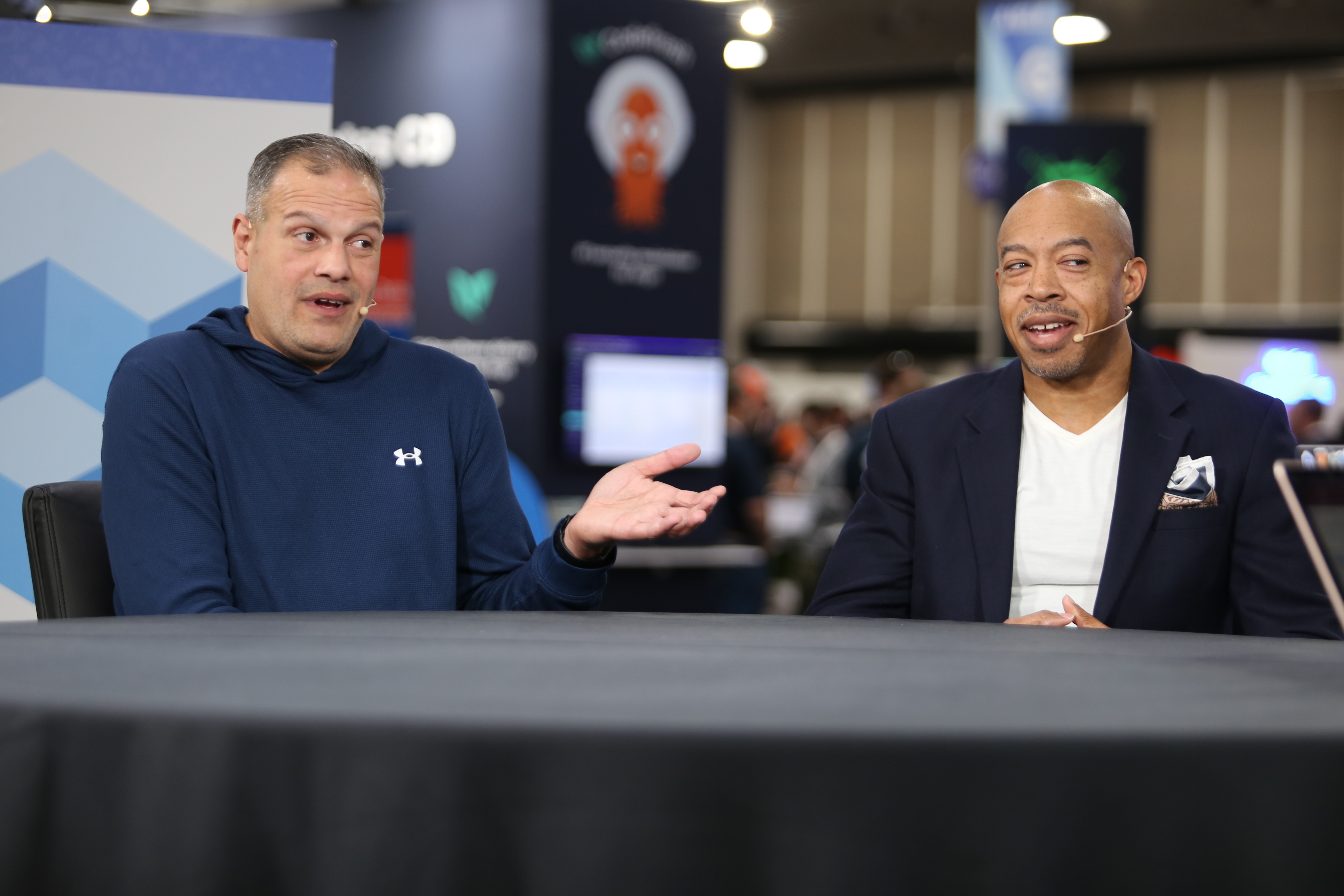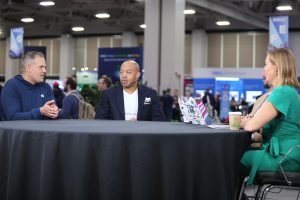 INFRA
INFRA
 INFRA
INFRA
 INFRA
INFRA
Earlier this week, Google Cloud announced it has upgraded its Google Kubernetes Engine capacity, with support for 65,000-node clusters. That’s up from its current support for 15,000-node clusters.
The jump is possible due to Spanner and other technologies, according to Gari Singh (pictured, left), product manager, Google Cloud, at Google LLC. Still, lots of the work was backported into open source.

Gari Singh and Bobby Allen of Google talk with theCUBE about the Google Kubernetes Engine.
“I mean, think about it. We were at 1,000, then 5,000 was big, 15,000 was massive. Now, from 15,000 to 65,000,” Singh said.
Singh and Bobby Allen (right), cloud therapist at Google, spoke with theCUBE Research’s Rob Strechay and Savannah Peterson at KubeCon + CloudNativeCon NA, during an exclusive broadcast on theCUBE, SiliconANGLE Media’s livestreaming studio. They discussed Google Kubernetes Engine, scaling Kubernetes for AI workloads and increasing Kubernetes’ accessibility and ease of use. (* Disclosure below.)
These days, there’s no shortage of conversation around generative AI, which is everywhere. But Google’s recent development around Google Kubernetes Engine is crucial, because the industry requires it, according to Singh.
“People need these massive clusters. Our internal stuff needs it and our top customers need it. So yeah, the team did a lot of work,” he said.
The principle at play is to solve problems before one hits a barrier. One could also think of it as headroom for innovation, according to Allen.
“If you had an environment where we took the barriers off, we took the limits off, what could you do? That’s what we’re trying to do,” he said. “Before you get there, we want to go ahead and break through that barrier, so you can just be unleashed.”
Though much of the focus this week revolved around the 65,000-node clusters, Google also announced details around self-service Kubernetes using GKE fleets and Argo CD. While generative AI is a shiny object, there’s also a goal to get people tools to operate better, according to Allen.
“How do you allow your developers to have more self-service and capabilities based on top of Kubernetes? We produce some really cool stuff around security, DNS access to the control plane,” he said.
Over the past decade, Kubernetes has evolved in dramatic and interesting ways. There are positive elements with regards to how Kubernetes has advanced and mapped to core enterprise problems over that period of time, according to Singh.
“As I tell people sometimes, I’m like, ‘Hey, now’s a great time to pick Kubernetes. We spent the last 10 years fixing all the problems that you might’ve had,’” he said. “We have all of the answers now. So go ahead and get going.”
While many new platforms often arise for specific tasks, Kubernetes stands out because it’s general enough to support nearly any workload. Even as AI frameworks have developed their own specialized tools, they are ultimately integrating with Kubernetes.
“This is great. Now it’s not this thing, like a miss out or pass out on technology,” Singh said. “To me, I give all the credit to the folks who designed Kubernetes as being highly pluggable and flexible and I think they really proved it out.”
Here’s the complete video interview, part of SiliconANGLE’s and theCUBE Research’s coverage of KubeCon + CloudNativeCon NA:
(* Disclosure: Google LLC sponsored this segment of theCUBE. Neither Google nor other sponsors have editorial control over content on theCUBE or SiliconANGLE.)
Support our mission to keep content open and free by engaging with theCUBE community. Join theCUBE’s Alumni Trust Network, where technology leaders connect, share intelligence and create opportunities.
Founded by tech visionaries John Furrier and Dave Vellante, SiliconANGLE Media has built a dynamic ecosystem of industry-leading digital media brands that reach 15+ million elite tech professionals. Our new proprietary theCUBE AI Video Cloud is breaking ground in audience interaction, leveraging theCUBEai.com neural network to help technology companies make data-driven decisions and stay at the forefront of industry conversations.